Education, an Afghan Conundrum
They were told school is not for them, that it’s bad for a girl to seek education, and were made to sit at home at a young age. Now, these Afghan women above 40 years in age share accounts of their crushed hopes.
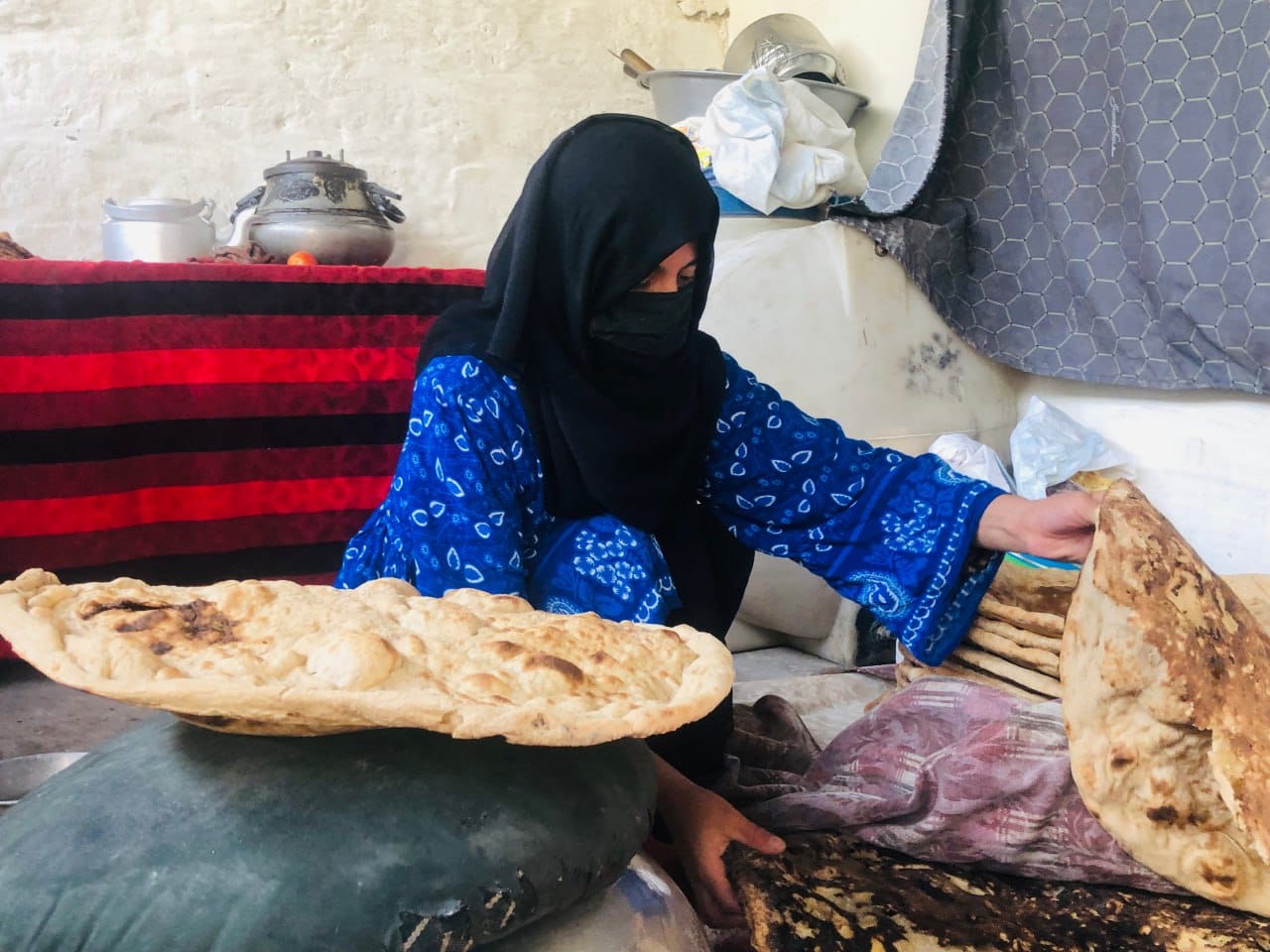
Reporting by Samira Wafa, Written by Abdul Ahad Poya and Mohammad Jawad Alizada
This article is part of a broader series exploring changes regarding access to education in Afghanistan, created with support from Afghan Witness (a project of the Centre for Information Resilience), which uses open-source investigating to expose human rights violations and counter mis- and disinformation. This series will incorporate open-source techniques to further corroborate the investigative reporting.
'My friends don't let their daughters go to school. If I include you, they'll speak ill of me!’ is what 42 year-old Zainab remembers her father Mullah Abdul Rahim telling her when she was 9, in 1991. Originally from Anar Dara, a district in southwestern Afghanistan’s Farah province, her family moved to Zaranj, the capital of neighboring Nimroz province when she was seven years old.
Her father, a religious scholar, initially enrolled her in a private school after their move. However, influenced by traditional beliefs shared by his friends in Nimroz, Mullah Rahim stops sending Zainab and her sisters to school.
"My father was a religious scholar with connections to the preaching congregation, imams, and other religious leaders. Their influence on my father also affected me; he didn't allow me to study beyond the second grade. Even my two younger sisters never went to school," Zainab told Alive in Afghanistan in an interview from her home while wearing a black Hijab with her eyes the only visible body part.
Zainab had a strong desire for education, her biggest dream in life was to become a doctor and serve people through this profession. However, this aspiration was thwarted by Afghanistan’s prevailing, conservative beliefs which turned Zainab from a potential caregiver into someone in need of assistance.
This longing to study tormented Zainab and her sisters, but there was nothing they could do about it. "When the girls in our neighborhood came home from school in their neat uniforms, our hearts burned with the question of why we couldn't study. We would watch the girls from behind the curtains. Our father would lock the gate from the outside so we couldn't even see them."
Zainab's mother was too busy with life to pay attention to her children’s education. "When we told our mother to ask our father to let us go to school, she would say, 'Taking care of four infants, a cow, and a sheep, doing housework, who has time for you to go to school? [Our father] didn't value education, so he didn't insist on us studying. I couldn't study, even though I had a keen interest in tailoring, but my mother didn't allow us to learn any art that would be useful to us today. We became victims of superstitions."
"In our neighborhood, some girls were attending school, and it wasn't considered a flaw for them. However, for us, being the daughters of a religious scholar, studying was seen as a disgrace. When my father moved our home from Anar Dara to Nimroz, people would say that Abdul Rahim had become a communist under the Soviet flag, and his wife and daughters had become liberated. People would tell my father that this had a negative impact. My father would say, 'They say bad things because they don't want a helpless girl like you to go to school. It will ruin her.'"
According to Zainab, people believed that "when a girl grows tall," she shouldn't study, and a girl who reaches puberty shouldn't leave the house. "They didn't have a complete understanding of religion and imposed their own beliefs on people. At that time, many children went to religious schools instead of regular schools, and parents preferred their children to learn about religion and the Quran rather than modern sciences."
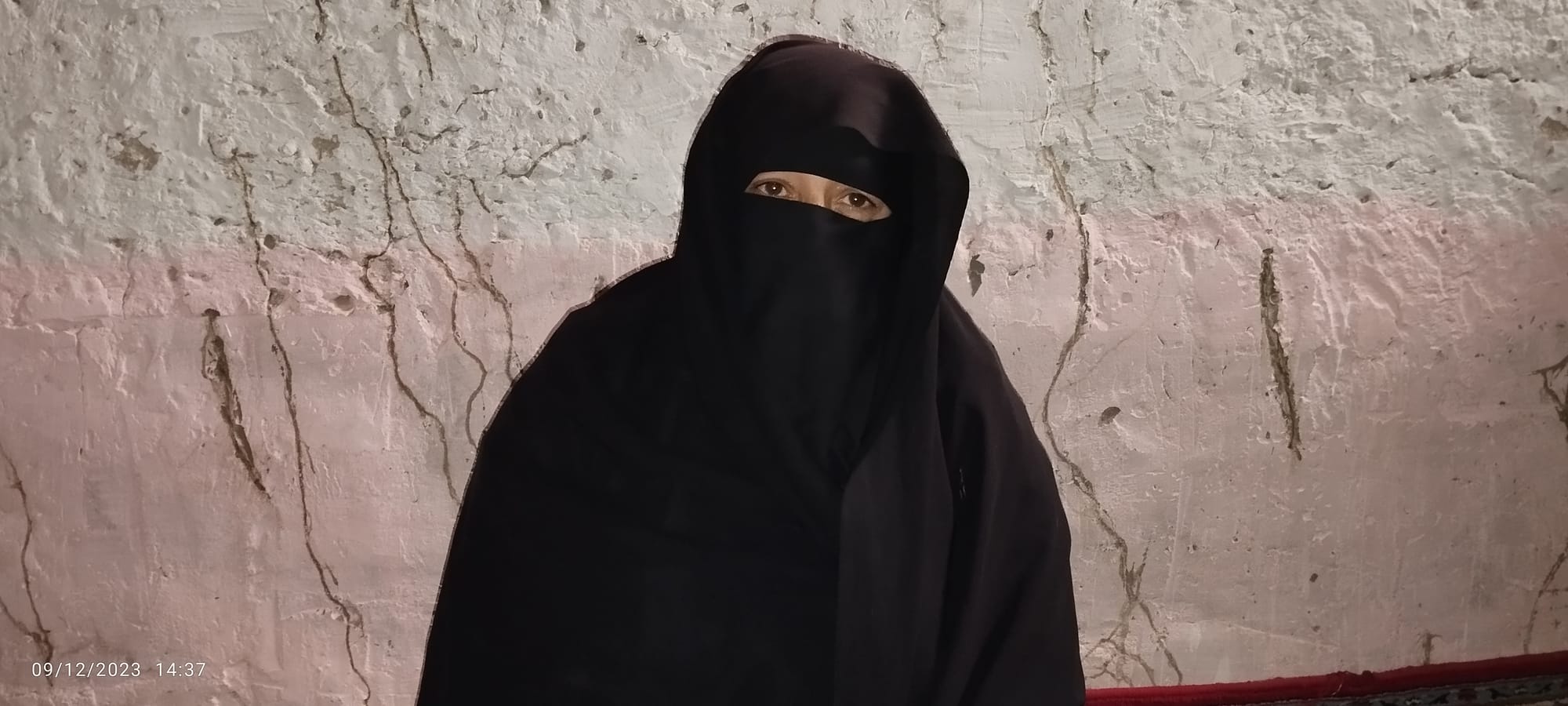
Zainab narrates with sorrow the roots of superstitious beliefs; at that time, religious leaders would prohibit their daughters and sons from going to school, claiming that "infidel teachings" were taught in schools.
Neglected and married as children, denied access to education, and treated as a commodity, Zainab now has to live with and take care of a husband who is addicted to drugs. Zainab herself has no source of income. Their eldest child is 17 years old and works at a job that earns a monthly wage of 5,000 Afghanis(~$68), which is an insignificant amount that doesn't cover their household expenses. According to Zainab, without occasional assistance from aid organizations and relatives, she cannot manage the costs of living.
"I eagerly await the times when an organization comes to provide support or when the phone rings, asking me to come and receive assistance. If I had been studying, my life wouldn't be like this today."
Mrs. Zainab sees the lives of millions of women and girls falling victim to superstitions believed by Mullahs, or as she puts it, "Half Mullahs," who imposed their rule on people and issued fatwas.
"Due to people's ignorant superstitions, we couldn't study. If I had studied, today I would be an independent woman with money in my pocket and a better life. Now, due to family circumstances, I can't find a job anywhere. Millions of lives in Afghanistan have been destroyed because of the strictness of our own mullahs."
Zainab and her sisters were only allowed to study the first five verses of the Quran with a female mosque preacher, and after that, they were deprived of Quranic education as well. When they reached the age of ten or eleven, they were told that they had grown up and should stay at home.
Now, she is making a difficult effort to educate her children, seeking help from those with better fortune. She mentions that despite their unfavorable economic conditions, she has enrolled her daughters in private schools because private schools pay more attention compared to government schools.
Mrs. Rahimi is not the only one who has fallen victim to this stereotypical behavior. Like her, countless other women have been deprived of their fundamental right to education in this way.
Sadia Hairdari, a 23-year-old Afghan women’s rights and education activist, appeared more interested in what Afghan women should do at present and in the future.
“Girls have been persecuted, humiliated, and used as commodities. Even when married, husbands treat their wives like servants who are there to cook,” Sadia said.
“You won’t change unless you are the one making that change. The change starts within you and your family first,” Ms. Haidari told Alive in Afghanistan. Haidari lamented the lack of support from Afghan men, saying, “We have Afghan women protesting, imprisoned, but men on social media shame the girls by saying those out on the streets are loose women, without families, without honor. I was upset while reading those comments, thinking, as a man, you can’t even defend the women of your own home when Taliban men enter and take your women away, but talk nonsense when women brave the streets and protest.”
Sadia refers to a recent Taliban crackdown on women accused of “not wearing proper hijab.” The United Nations Assistance Mission in Afghanistan (UNAMA) released a report on the “Human rights situation in Afghanistan” on Monday, stating that the Taliban “[began] to take measures to enforce the 25 April 2022 hijab decree, involving arbitrary arrests and detentions and verbal warnings of a substantial number of women and girls[,]” accused of not wearing proper hijab.
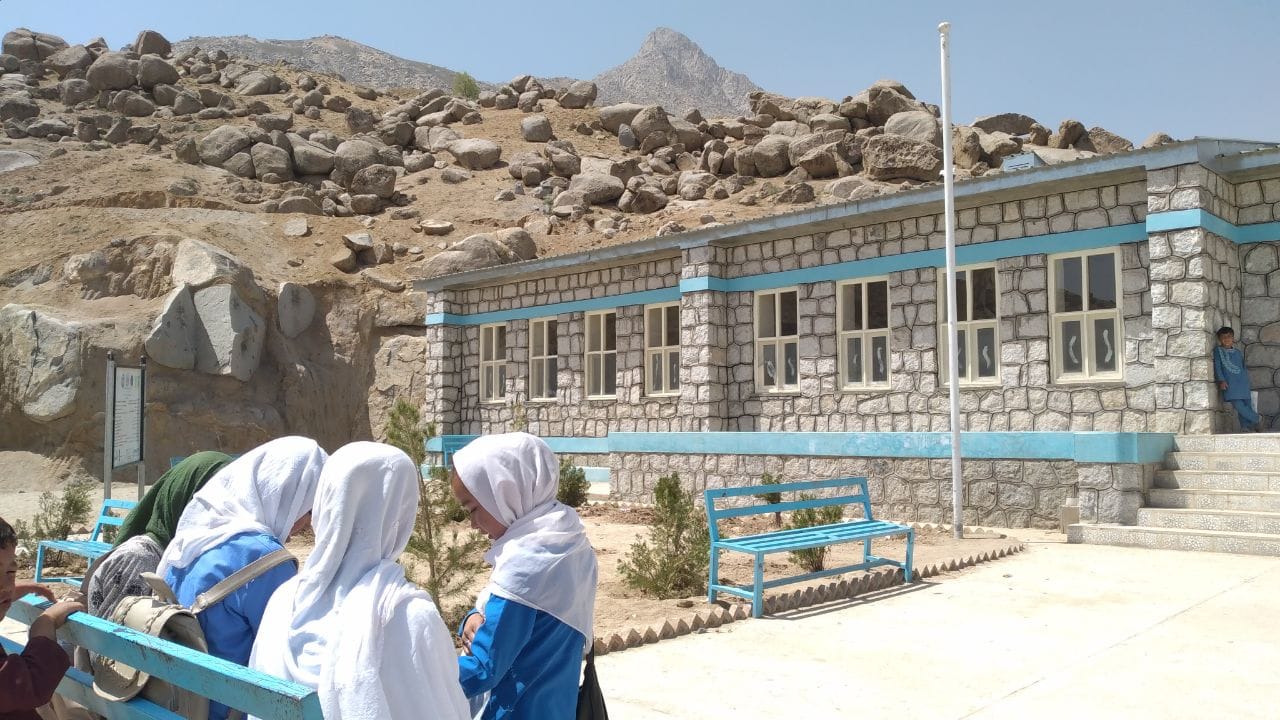
Sediqa Yousufzai, another resident of Nimroz province, lost her husband in the war two years ago and now bears the responsibility of providing for her six children. Her husband, a national army soldier, lost his life in direct combat with the Taliban.
Sediqa was 10 when she was denied to continue going to a religious school. At the time, Sediqa had attended four years of religious schooling in 1980 just a year after the invasion of Afghanistan by the former Soviet Union.
"My sisters and I attended religious school for two to four years; we didn't go to regular school. My father used to say, 'I don't want you to learn infidel teachings. The knowledge you gain in religious school is the knowledge that God has ordained. You must follow God's path to go to paradise.' He would take us to school with full hijab but didn't allow us to complete our religious education. After four years, he said, 'You have grown up, and you shouldn't leave the house. People speak ill of me for letting you, with your tall stature, go to school. What you have learned to read and write is enough.'"
Sediqa’s five sisters have also only studied at the primary level in the religious section. Sediqa’s father taught the Holy Quran and religious sciences to around 2,000 students including his children.
According to two papers on the history of education in Afghanistan, “History and Problems of Education in Afghanistan by Mehtarkhan Khwajamir”, and “Education and Minority Groups in Afghanistan: The Case of Hazara People by Mir Hussain Amiri”, the country has primarily used religious schools to educate the public–even before the rise of Islam across Afghanistan. Mehtarkhan’s study documents that formal education institutions did not exist in Afghanistan when the nation was established in 1774 and only began in 1875.
“The number of established schools didn’t exceed the number four until 1919,” according to the study. All of those schools were for boys.
One Afghan ruler, King Amanullah Khan (1919-1929) was exiled due to backlash from religious scholars after the king made primary education mandatory, opened the first girls' schools, and sent students to study abroad.
Sediqa was married two years later at the age of 12 and is now a mother to four mentally challenged children who require constant care. According to Sediqa, her children were taken to Afghanistan’s capital Kabul for treatment, doctors there told her her children’s brains did not develop normally.
"If I had been allowed to study, I wouldn't have given birth to so many disabled children consecutively. My husband also didn't value education much. I tried to educate my two children myself, and now my daughter is in the 6th grade, and my son is in the 11th grade."
Despite economic challenges, Sediqa sends her daughter to a private school. She feels the pain of illiteracy more than ever every day and worries about her daughter's future, fearing that she might not be able to continue her education due to the Taliban’s restrictions.
Sediqa said she would have to, “leave Afghanistan if girls' schools do not open. My daughter’s education is very important for me.”
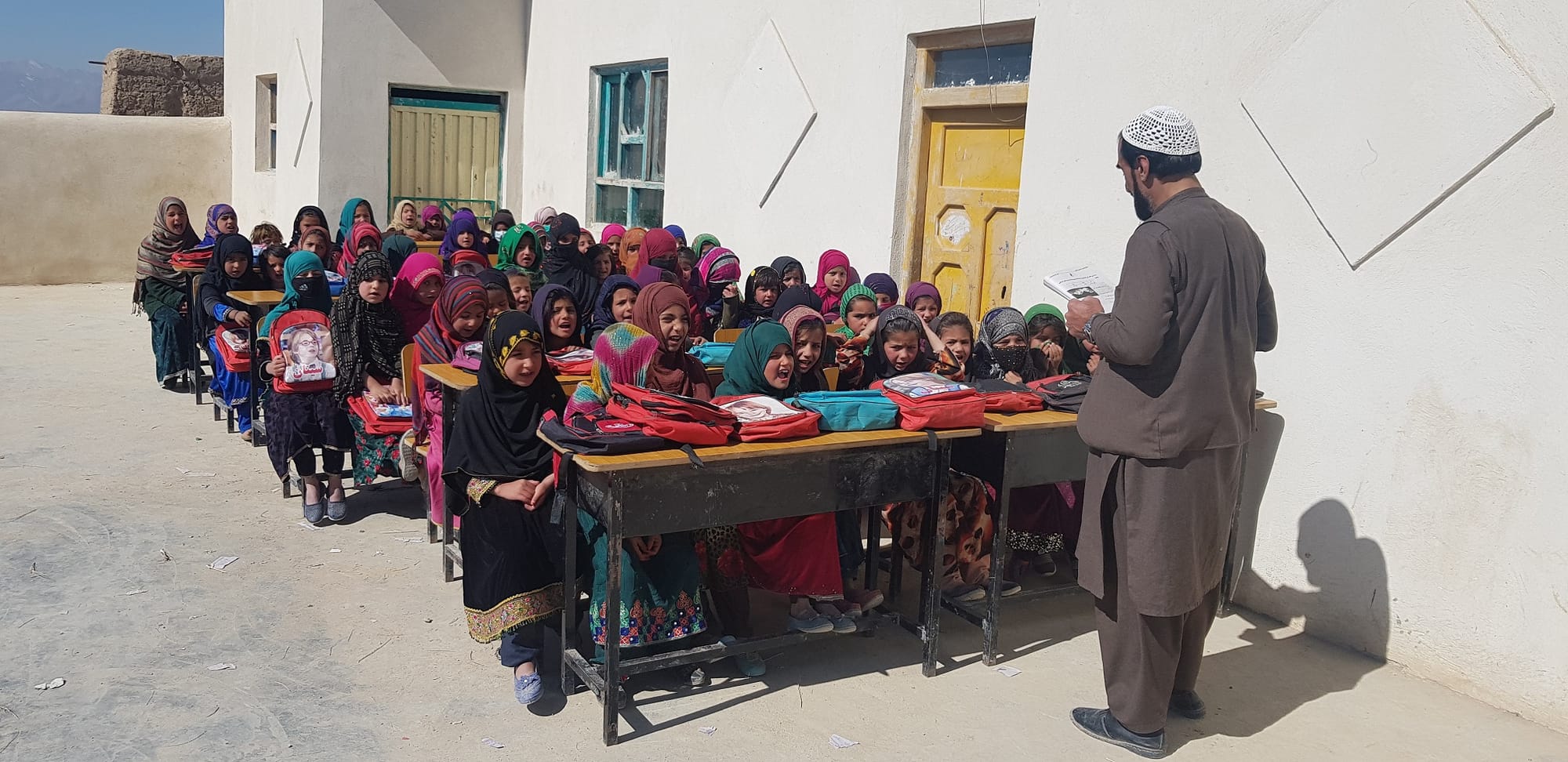
The Taliban banned girls above the 6th grade from seeking education after the group took control of Afghanistan in August 2021, sparking worldwide backlash and protests. Although girls can study through online schools run by international organizations and Afghan education activists, the number of girls studying virtually remains unclear.
Education has long been a source of conflict within Afghan society, stretching back to the founding of the nation in 1774.
According to Sediqa, experience and history have shown that Afghan girls, including herself and her daughter, have been victims of various prejudices throughout different eras. Both have fallen prey to a cultural approach that she labels as "horrific Afghan Culture," rooted not in Islam but in the ignorance of the people.
“My own future became dark, I won’t allow my daughter’s future to be like mine. As a woman, I will fight the deep-rooted prejudices in Afghanistan!”
Mrs. Yousufzai believes that men perceive education and schools as un-Islamic. According to Mrs. Yousufzai, Afghans continue to view education with hostility and consider it a shame while other countries dominate space using modern science and technology.
Rokhsana, a 52-year-old Afghan woman living in Germany for the past year and a half, was the sole literate woman in her traditional family. She gained recognition as an educated woman solely because of her knowledge of the Quran.
Driven by her keen interest in learning and teaching, she independently practiced the remaining 29 chapters of the Quran after initially learning the first part from her father. She mentions that her father would occasionally test her to ensure she read correctly.
At the age of 14 Rokhsana was married off without her parents even asking for her opinion. The age difference between Rokhsana and her husband exceeded her own age. Rokhsana became her husband's second wife, primarily chosen to bear children for him.
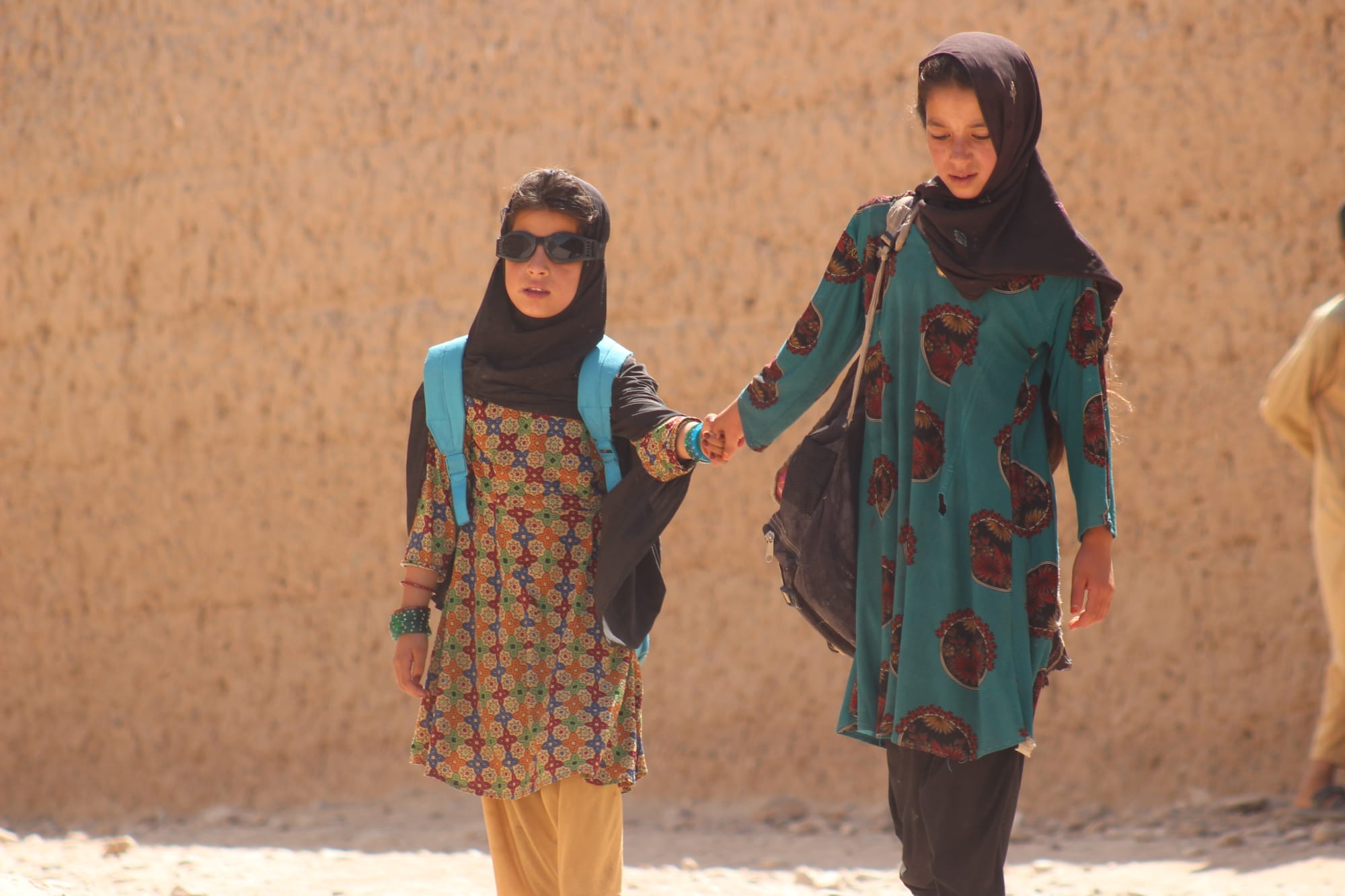
The fate of Rokhsana's two daughters mirrors that of their mother, as neither of the two daughters nor her three stepdaughters had permission to attend school. According to Rokhsana the main reason for denying the girls the opportunity to study was insecurity. She explained that during the Mujahideen era there was constant conflict between the Mujahideen and the government forces known as Khalqis and Parchamis.
"The Mujahideen destroyed schools because Russians, Khalqis, and Parchamis sought refuge inside them. Government forces utilized schools as strongholds due to their strategic locations."
The first girl from Rokhsana's family to set foot in a school is her granddaughter, Nwasa. She was granted permission to attend school following the American intervention of Afghanistan. However, with the return of the Taliban, she, like her grandmother and aunts, has been denied education. The distinction lies in the fact that her grandmother and aunts were prohibited by the family, whereas she is restricted by the ruling regime.
“A tall and beautiful girl who was our neighbor encouraged me a lot and said ‘You are very intelligent. If you go to school, they will put you in the 4th grade’, but my father didn't allow it. If I had studied, I could easily learn German now and integrate well into society. I would have been a teacher if I had studied, I really want to teach."
“It wasn’t only me who didn’t go to school. One out of every five girls in our neighborhood might have gone. Like children returning from Kabul [the Afghan capital]. The school was far away too, with fewer facilities, and not everyone had access to transportation."
Rokhshana’s dad owned a car and drove for a living, “He could drive me to and from school every day, but had no interest. He taught me numbers at home occasionally. I could probably write up to 100 and count in the thousands.”
"My dad said a girl shouldn't go to school. ‘What will a girl do with school? A girl should only understand the Quran and pray. School is not good for women. My stepmother didn’t have the courage to let me study. My mother studied until the 14th grade but always stayed home. Her only job was cooking."
Despite it all, Rokhsana, like a candle in a dark room, has illuminated her surroundings. She has taught all her daughters and sons, as well as her stepdaughters, the Quran, and has even assisted them with her limited abilities in religious and school subjects. Her son, now a journalist, attributes his education to his mother's efforts and says that if his mother had not taught him in childhood, he might be an illiterate burden on others today.
Rokhsana urges all parents to permit their daughters to attend school, study, and bear the burden of literacy like their sons. She appeals to the Taliban to open the doors of schools and universities for girls, ensuring that another illiterate generation does not persist.
Rokhsana urges all parents to allow their daughters to attend school and study. She appeals to the Taliban to open the doors of schools and universities for girls, ensuring that another illiterate generation does not persist.
